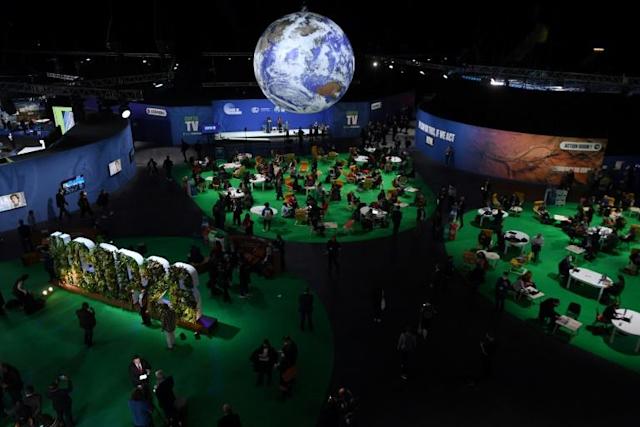
GLASGOW, Nov 12, 2021 (BSS/AFP) - UN climate talks headed towards a rocky
conclusion Friday after two weeks of fraught debate failed to resolve several
key disputes or produce the emissions cutting plans needed to limit global
warming to 1.5C.
"The world is watching us", COP26 President Alok Sharma told delegates
charged with keeping the Paris Agreement temperature goals alive even as
climate-driven disasters hit countries the world over.
The summit began with a bang as world leaders descended on Glasgow armed
with a string of headline announcements, from a commitment to slash methane
emissions to a plan to save the rainforests.
But progress has stalled in the underlying technical and now minister-level
negotiations.
With one day left of scheduled talks, countries are hardly any closer to
agreement over whether national emissions cutting plans must be ramped up in
the short term, how climate action is reported, and how vulnerable nations
are supported.
"The truth is that the atmosphere doesn't care about commitments," said
Ugandan youth activist Vanessa Nakate.
"It only cares about what we put into it or stop putting into it. Humanity
will not be saved by promises."
Draft decision texts urged countries to speed up their decarbonisation
plans and submit renewed contributions by 2022, three years sooner than
planned.
They also included a rare mention of fossil fuels -- anathema to large
hydrocarbon producers but a key ask of the European Union and other advanced
economies.
Host Britain says it wants COP26 to lead to commitments from countries to
keep the 1.5C temperature cap goal of the Paris agreement within reach.
However, current national emissions cutting plans, all told, would lead to
2.7C of heating.
UN Secretary Antonio Guterres said Thursday that countries' climate plans
were "hollow" without commitments to rapidly phase out fossil fuels.
- US-China pact -
Negotiations received a shot in the arm Wednesday when the United States
and China -- the two largest emitters -- unveiled a joint climate action
plan.
Although it was light on detail, observers said the pact allayed concerns
that frosty US-China relations entering into COP26 would derail the talks.
But trust levels between rich polluters and developing nations are low
after developed countries failed to stump up the $100 billion a year they
promised by 2020.
Finance more generally is holding up progress in Glasgow, with developing
nations insisting on more money for adaptation that can help them brace for
future climate shocks.
Developed nations meanwhile favour a greater push on emissions reductions,
something countries yet to fully electrify their grids -- and largely
blameless for emissions -- feel is unfair.
"We have made steps forward," European Commission vice president Frans
Timmermans told AFP.
"It's not enough to address the issue that we face, but we're having a
completely different conversation now than we had only a couple of months
ago. Adaptation has really gone up on our global agenda."
Countries already battered by climate disasters such as record-breaking
drought and flooding are demanding they be compensated separately for "loss
and damage".
Organisers said the draft texts dedicated an "unprecedented" section to
loss and damage, but vulnerable nations said it stopped far short of their
expectations.
Other issues likely to delay an agreement in Glasgow include a long-
simmering dispute over the rules governing carbon markets, and common
reporting timeframes.